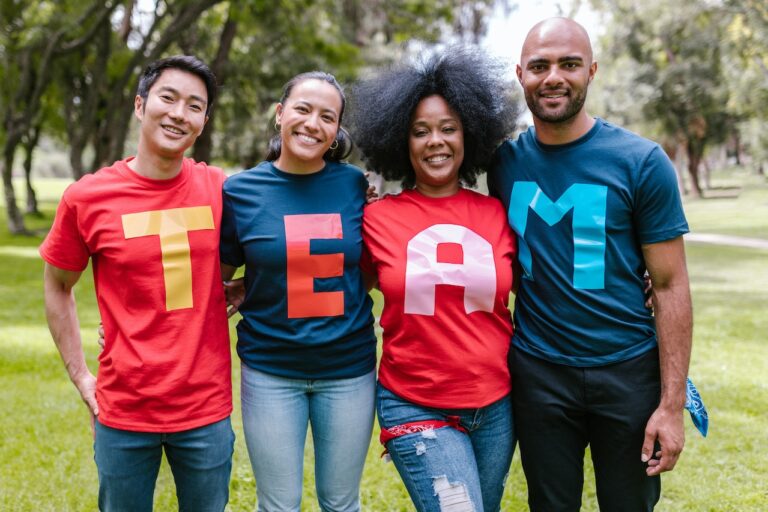Billie Jean King: Lessons in Leadership

Breaking Barriers and Fighting for Equality: The Leadership of Billie Jean King
Billie Jean King is a trailblazer in the world of sports and a true leader in the fight for gender equality. Throughout her career, she broke barriers and shattered stereotypes, proving that women can compete and succeed at the highest levels of sport. In addition to her athletic achievements, King is also known for her activism and advocacy for women’s rights. In this article, we will explore the leadership lessons and stories that can be learned from Billie Jean King’s life and career. From her early days as a young athlete to her later years as a social justice advocate, King’s example serves as an inspiration to us all. The main focus of the article will be on King’s leadership in the fight for gender equality and the impact of her victory in the “Battle of the Sexes” match against Bobby Riggs.
Early Life and Career
Billie Jean King began playing tennis at a young age and quickly showed a natural talent for the sport. She started competing in local tournaments and quickly progressed to state and national competitions. King’s early experiences in tennis laid the foundation for her rise to the top of the sport.
However, King faced significant challenges as a female athlete in a male-dominated sport. In the 1960s and 1970s, women’s tennis was not taken as seriously as men’s tennis and female athletes were not afforded the same opportunities or recognition as their male counterparts. King had to work hard to gain respect and recognition, and faced discrimination and sexism at every turn. Despite these challenges, King persevered and continued to compete at the highest levels of the sport.
King’s hard work and determination paid off as she began to win major tournaments and establish herself as one of the best players in the world. She won her first Wimbledon title in 1966, and went on to win 12 Grand Slam singles titles, 16 Grand Slam doubles titles, and 11 Grand Slam mixed doubles titles. King’s success on the court helped to pave the way for future generations of female athletes and helped to change the perception of women’s sports.
Leadership in the Fight for Gender Equality
Billie Jean King’s success on the court was not only limited to her athletic achievements, but also, her leadership in the fight for gender equality. She was one of the leading voices in the push for equal pay and opportunities for female athletes. King’s advocacy work extended beyond sports and also, fought for equal rights and opportunities for women in all aspects of life.
One of the most notable moments in King’s fight for gender equality was the “Battle of the Sexes” match against Bobby Riggs in 1973. Riggs, a former men’s tennis champion, had publicly claimed that women were inferior athletes and that he could easily defeat any top-ranked female player. King accepted Riggs’ challenge and the match attracted worldwide attention.
The match was not just about winning a tennis match but also, it was an opportunity for King to prove that women can compete and succeed at the highest levels of sport and to challenge the societal perceptions about gender roles. King went on to defeat Riggs, in front of a TV audience of over 90 million people, and in doing so, she made a powerful statement about the capabilities of women. The impact of her victory in the “Battle of the Sexes” match went far beyond the tennis court, it helped to raise the profile of women’s sports and increased the visibility of the fight for gender equality.
Standing Up for What is Right
Throughout her life and career, Billie Jean King has been known for her willingness to take a stand against discrimination and injustice, even when it was unpopular or risky to do so. Her victory in the “Battle of the Sexes” match was a prime example of this, but it wasn’t the only time she stood up for what was right.
King was one of the first high-profile athletes to come out as gay and she faced a significant amount of discrimination and backlash as a result. Despite the personal and professional risks, she chose to be open and honest about her sexuality in order to pave the way for others and to raise awareness about the discrimination faced by the LGBTQ+ community.
King also used her platform to speak out against racism and other forms of discrimination. She actively supported causes such as the Civil Rights Movement and has been a vocal advocate for diversity and inclusion in sports and society.
King’s willingness to take a stand against discrimination and injustice serves as an inspiration to us all. It demonstrates the importance of having the courage to speak out and fight for what is right, even when it is difficult or unpopular to do so. King’s leadership and activism continue to inspire people to stand up for what they believe in and to strive for a more just and equitable world.
Leading by Example
Throughout her career, Billie Jean King set a powerful example for young athletes and aspiring leaders to follow. Her dedication to her sport and her commitment to excellence were evident in everything she did. She trained hard, competed fiercely, and always pushed herself to be the best she could be.
But King’s leadership went beyond her athletic achievements. She also served as a role model for young athletes and aspiring leaders. King’s dedication to her sport and her commitment to being a role model for young athletes helped to inspire a generation of young people to pursue their own dreams and to believe in themselves.
King’s leadership by example extended beyond sports, her honesty and openness about her sexuality and her activism on human rights issues, served as a positive example for others to follow. King’s leadership and activism helped to break down barriers, challenge stereotypes, and create a more inclusive and equitable world.
The importance of setting a positive example for others to follow can not be overstated. King’s leadership and example continues to inspire people to strive for excellence and to work towards creating a more just and equitable world. King’s leadership is a testament to the impact that one person can have, and it serves as a powerful reminder of the importance of leading by example.
Building and Maintaining Strong Relationships
Billie Jean King’s leadership is also demonstrated by her ability to form and maintain strong relationships with her colleagues, opponents, and fans. Throughout her career, King was known for her sportsmanship and her ability to connect with people from all walks of life.
King’s ability to form strong relationships with her colleagues, opponents, and fans was a key factor in her success as a leader. Her ability to communicate effectively and to work well with others helped her to build strong teams and to create a positive and supportive environment.
One of King’s most significant contributions was to the formation of the Women’s Tennis Association (WTA), which was formed in 1973, she served as the first President of the organization. Through her leadership, the WTA was able to establish a professional tour and create new opportunities for female athletes.
The importance of good communication and teamwork in effective leadership is highlighted by King’s ability to form and maintain strong relationships. Her leadership serves as a reminder of the importance of building and maintaining strong relationships, which can be crucial to achieving success both in sports and in life. King’s ability to build strong relationships allowed her to achieve her goals, and it serves as a powerful example of how effective leadership can lead to positive change.
The Timeless Leadership Lessons of Billie Jean King
Billie Jean King’s life and career serve as a powerful example of effective leadership. From her early days as a young athlete to her later years as a social justice advocate, King’s example has inspired generations of people to strive for excellence and to work towards creating a more just and equitable world.
Throughout this article, we have explored the leadership lessons and stories that can be learned from King’s life and career. We have seen how her early experiences in tennis laid the foundation for her rise to the top of the sport and the challenges she faced as a female athlete in a male-dominated sport. We have also seen how King’s leadership in the fight for gender equality and her victory in the “Battle of the Sexes” match against Bobby Riggs has made a powerful statement about the capabilities of women. Additionally, we have seen how King’s willingness to take a stand against discrimination and injustice and her dedication to her sport and her commitment to being a role model for young athletes are important factors of her leadership. Finally, we have seen how King’s ability to form and maintain strong relationships, and the importance of good communication and teamwork in effective leadership.
The enduring impact of King’s leadership is undeniable. Her leadership in the fight for gender equality, her activism and her example continue to inspire people to strive for excellence and to work towards creating a more just and equitable world. The lessons that can be learned from King’s example are timeless, and her leadership will continue to inspire future generations.





